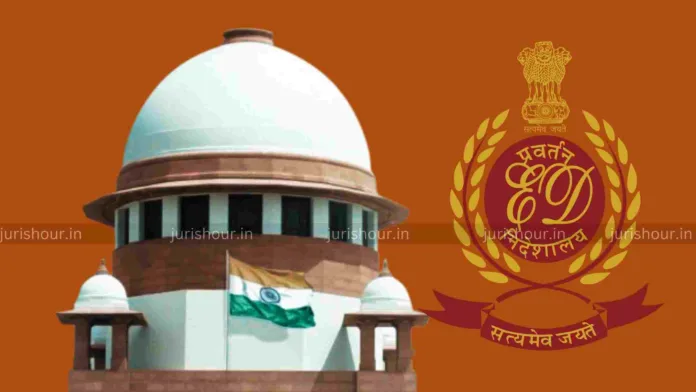The Supreme Court reserved its order in a suo motu matter concerning the summoning of advocates by investigative agencies while they are engaged in representing clients. The case, prompted by recent incidents involving the Enforcement Directorate (ED), has raised significant questions about the professional immunity of lawyers and the limits of investigative powers.
A bench of Chief Justice of India B.R. Gavai, Justice K. Vinod Chandran and Justice N.V. Anjaria described the apex court as the “custodian of all citizens in the country,” underscoring its duty to safeguard the rights of every individual.
During the hearing, Solicitor General Tushar Mehta emphasised that lawyers form an integral part of the administration of justice and should be protected from unwarranted interference. “A lawyer should never be summoned merely for providing a professional opinion,” Mehta said. However, the bench clarified that professional immunity does not extend to situations where an advocate participates in illegal activities, such as tampering with evidence or fabricating documents.
Senior advocate Sidharth Luthra argued that the matter went to the heart of ensuring access to justice, recounting a case where an FIR was lodged against a lawyer over a notarised affidavit submitted on a client’s behalf. The bench observed that it could not create “two classes of lawyers” and that any legal standard set must apply uniformly.
Attorney General R. Venkataramani informed the court that he had reviewed submissions from various bar bodies and would be filing a written note. The bench directed all parties to submit their notes within a week.
The matter stems from earlier observations by the Supreme Court on 29 July, when it held that advocates should not be summoned by probe agencies for merely rendering legal advice to clients under investigation, unless there is evidence they assisted in the commission of a crime.
The case gained momentum after the ED summoned senior lawyers Arvind Datar and Pratap Venugopal, prompting sharp criticism from the Supreme Court Bar Association (SCBA) and the Supreme Court Advocates-on-Record Association (SCAORA). The bar bodies described the practice as a “disturbing trend” undermining the foundations of the legal profession and urged the CJI to take suo motu cognisance.
Following the controversy, the ED issued an internal circular on 20 June directing its officers not to summon advocates in money laundering cases against their clients, except with prior approval from the agency’s director. The directive cited Section 132 of the Bhartiya Sakshya Adhiniyam, 2023, which restricts such action.
The Supreme Court had previously remarked that the ED was “crossing all limits” and stressed the need for clear guidelines to prevent investigative overreach into the work of legal professionals. With arguments now concluded, the court’s forthcoming judgment is expected to set important precedents on the intersection of legal privilege, professional ethics, and investigative powers.
Read More: Catering to Educational Institutions Exempt from Service Tax: CESTAT

